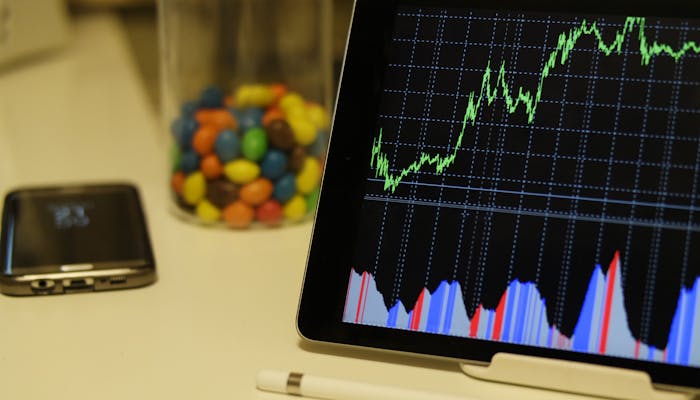Key Assumptions Behind the Efficient Market Hypothesis

Ever wondered why it’s so tough to beat the stock market? The Efficient Market Hypothesis (EMH) might hold the answer. It suggests that stock prices fully reflect all available information, making it nearly impossible to gain an edge. Let’s dive into the core assumptions behind this theory to see how they shape our understanding of market behavior. Go https://immediatebrimax.com right now to find more information regarding investing and concepts related to it.
Rational Expectations of Market Participants
When we talk about the Efficient Market Hypothesis (EMH), the idea of rational expectations is right at the heart of it. What does this really mean, though? Simply put, it suggests that investors, on average, make decisions based on all available information and do so in a way that’s rational. They aren’t relying on gut feelings or rumors but on facts and analysis. For example, think about a company releasing its earnings report.
However, the tricky part is that not everyone reacts in the same way. You know how, sometimes, you’re at a party and hear two totally different stories about the same event? The stock market is a bit like that.
People have different interpretations of the same information. But here’s the catch: even with these different views, the market as a whole behaves as if everyone has come to a rational consensus.
So, why does this matter to us? Because it helps explain why, in an efficient market, beating the market isn’t about being smarter than everyone else; it’s about being lucky or having information that others don’t.
But let’s be honest, how often does that happen? Rarely. It’s like trying to find a needle in a haystack. Therefore, understanding the assumption of rational expectations helps us see why it’s so hard to outperform the market consistently.
Instantaneous Information Dissemination and Market Adjustment
Think of the stock market as a giant sponge. Whenever there’s new information—whether it’s a change in interest rates, a geopolitical event, or a CEO stepping down—the market absorbs it almost instantly. That’s the crux of another core assumption of the Efficient Market Hypothesis: information is quickly and fully reflected in stock prices.
This means there’s no lag time where savvy investors can capitalize on outdated news. You see, in the era of high-speed internet and algorithmic trading, information spreads faster than gossip in a small town.
For example, let’s say a major tech company just announced a breakthrough innovation. Within seconds, this news is out there on social media, financial news sites, and trading platforms.
- Stock Market Crash: Is it coming?
- Leveraging Big Data: 10 Ways to Maximize Returns in the U.S. Stock Market
By the time you or I read about it, the price of that company’s stock has likely already adjusted to reflect the impact of this news. It’s kind of like trying to buy a concert ticket for a big band – if you’re not there the moment sales go live, chances are you’ll miss out.
But does this always work perfectly? Not really. Sometimes, there are glitches, like when bad news spreads slower because the company tries to manage the narrative. Or when rumors and fake news can cause temporary price spikes or drops.
However, under the EMH, these are exceptions, not the rule. The market is thought to self-correct swiftly, bouncing back to reflect the “true” value based on all available information.
Price Reflectiveness of All Available Information
Imagine you’re at an auction, and everyone has the same catalog with the exact details about each item. That’s how the Efficient Market Hypothesis views stock prices—everyone’s bidding based on the same data, whether it’s public news, earnings reports, or economic indicators. The price you see is the best guess of what that stock is worth, given all known information. No hidden surprises, no secret tips that only the insiders know.
However, here’s where it gets a little complex. The EMH assumes that all types of information, be it public or private, are already priced in. Public information is straightforward: it’s what you and I can read in the news or a company’s quarterly report. But private information?
That’s trickier. It’s the stuff that’s not supposed to leak but sometimes does. Think of it like a whisper in a crowded room – some hear it, some don’t. Yet, according to EMH, even these whispers get factored into prices pretty fast.
This is why, in theory, there’s no point in trying to “outsmart” the market by digging up secret info. By the time you act, so have countless others. The price has already moved, leaving no room for easy gains.
It’s like trying to win at a game of musical chairs where everyone knows exactly when the music will stop. So, does this mean markets are perfect? Not quite. Prices can still swing wildly based on emotions, but over time, they’re thought to gravitate towards an accurate reflection of all available data.
Conclusion
Understanding the key assumptions of the Efficient Market Hypothesis can change how we approach investing. While it may seem like a daunting concept, grasping these fundamentals can help us navigate the unpredictable world of finance. Still curious? Keep learning and always seek advice from financial experts to stay ahead of the curve.
Disclaimer: This is promotional marketing content. The presented material by no means represents any financial advice or promotion. Be sure to research and acknowledge the possible risks before using the service of any trading platform.





